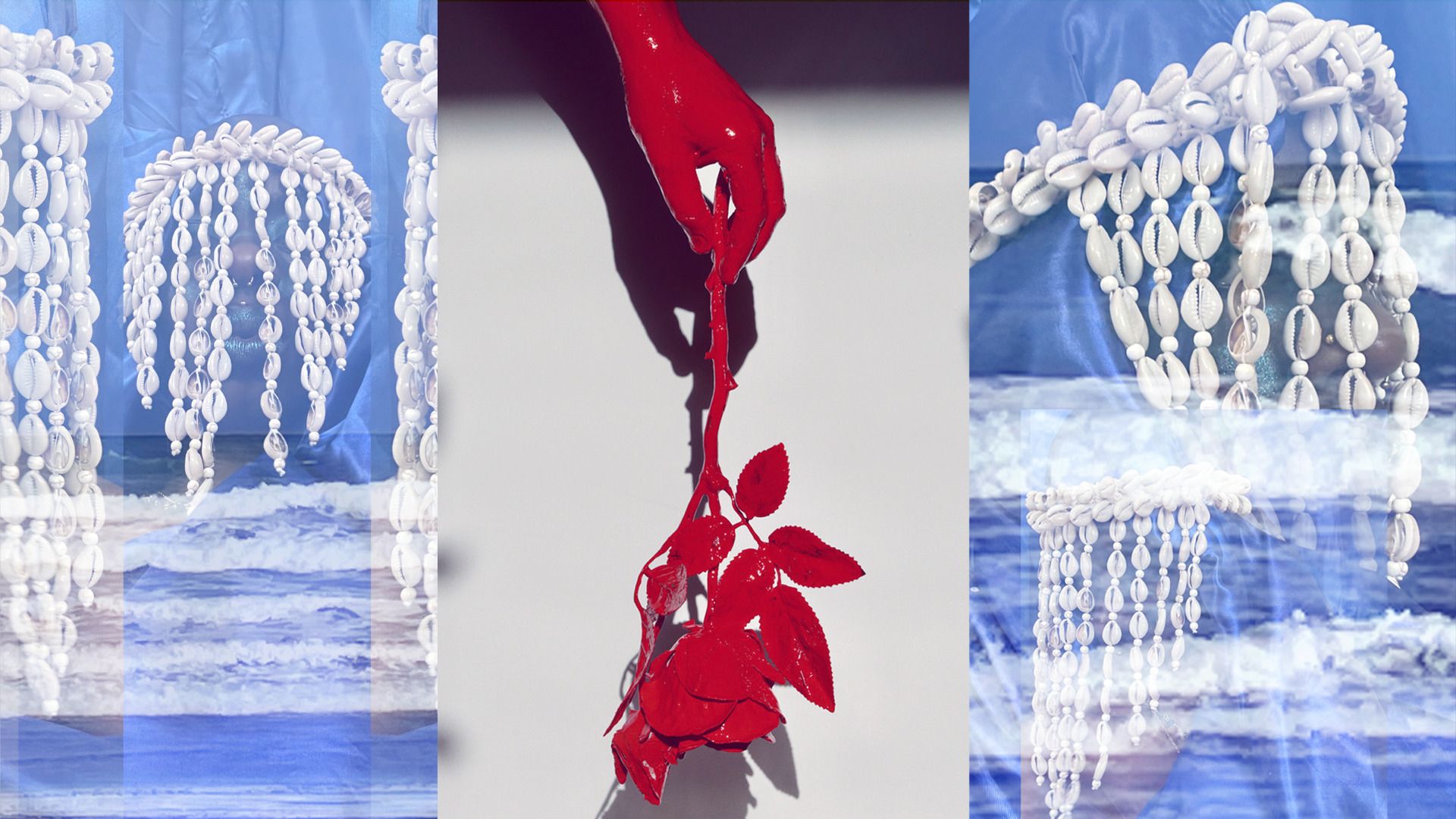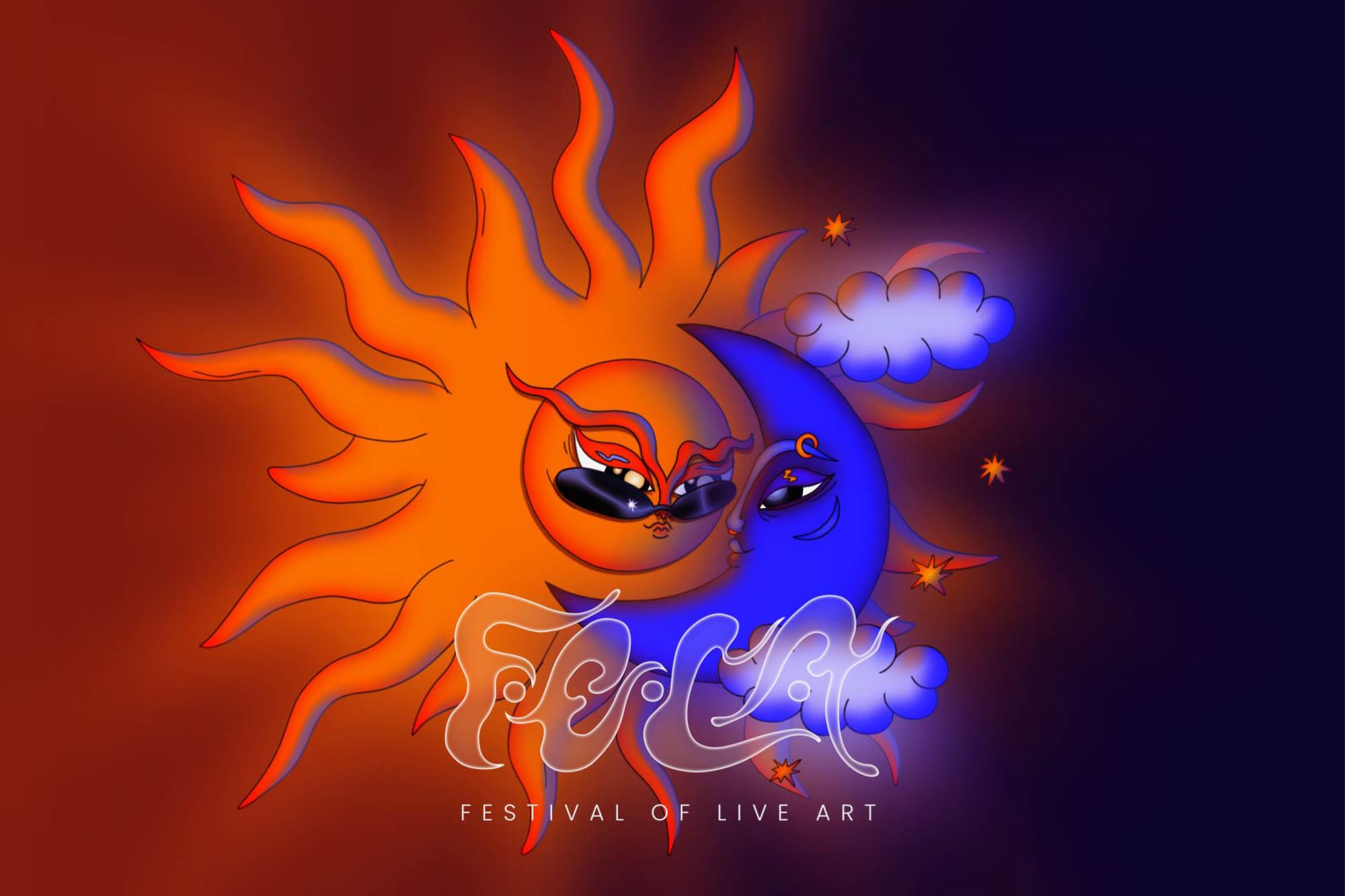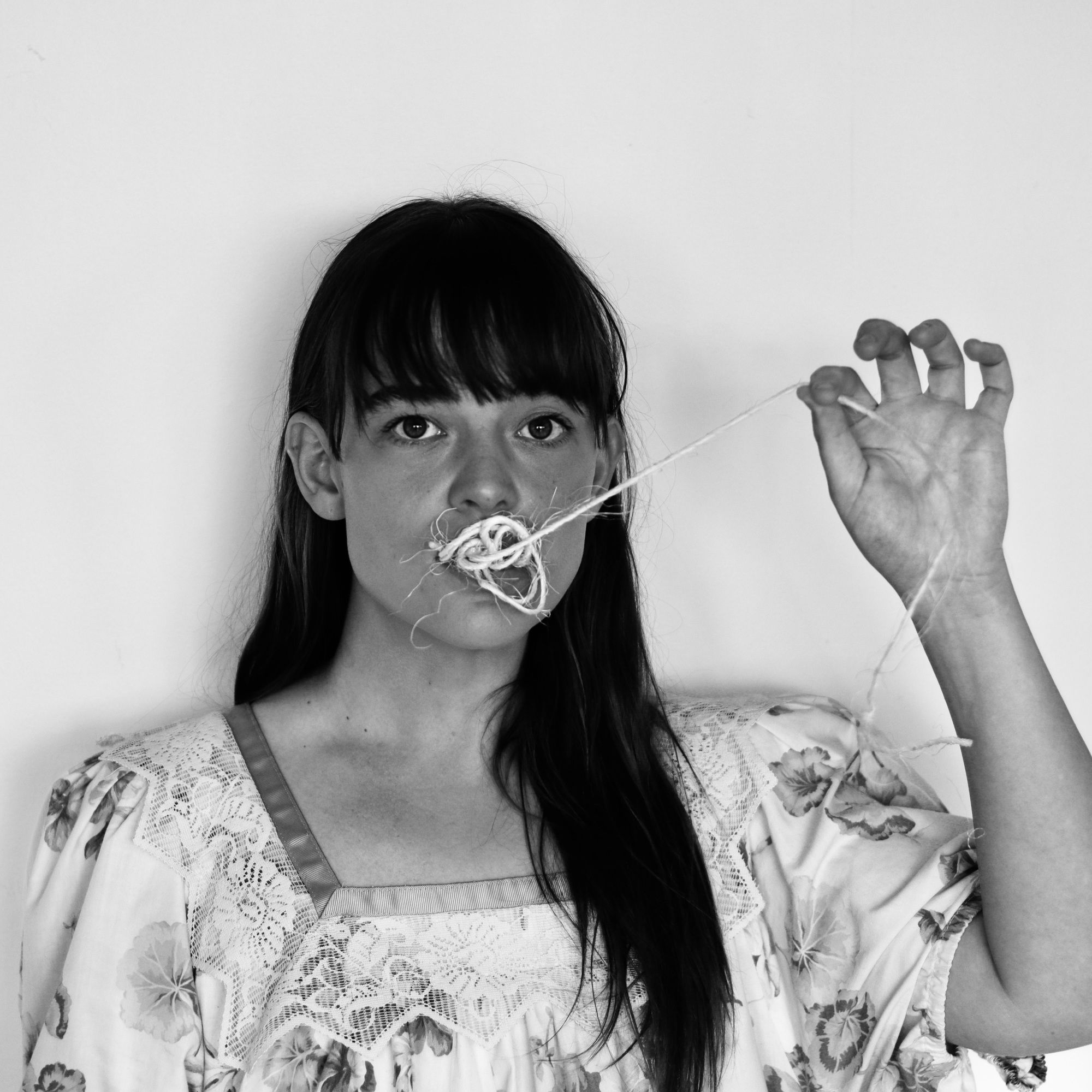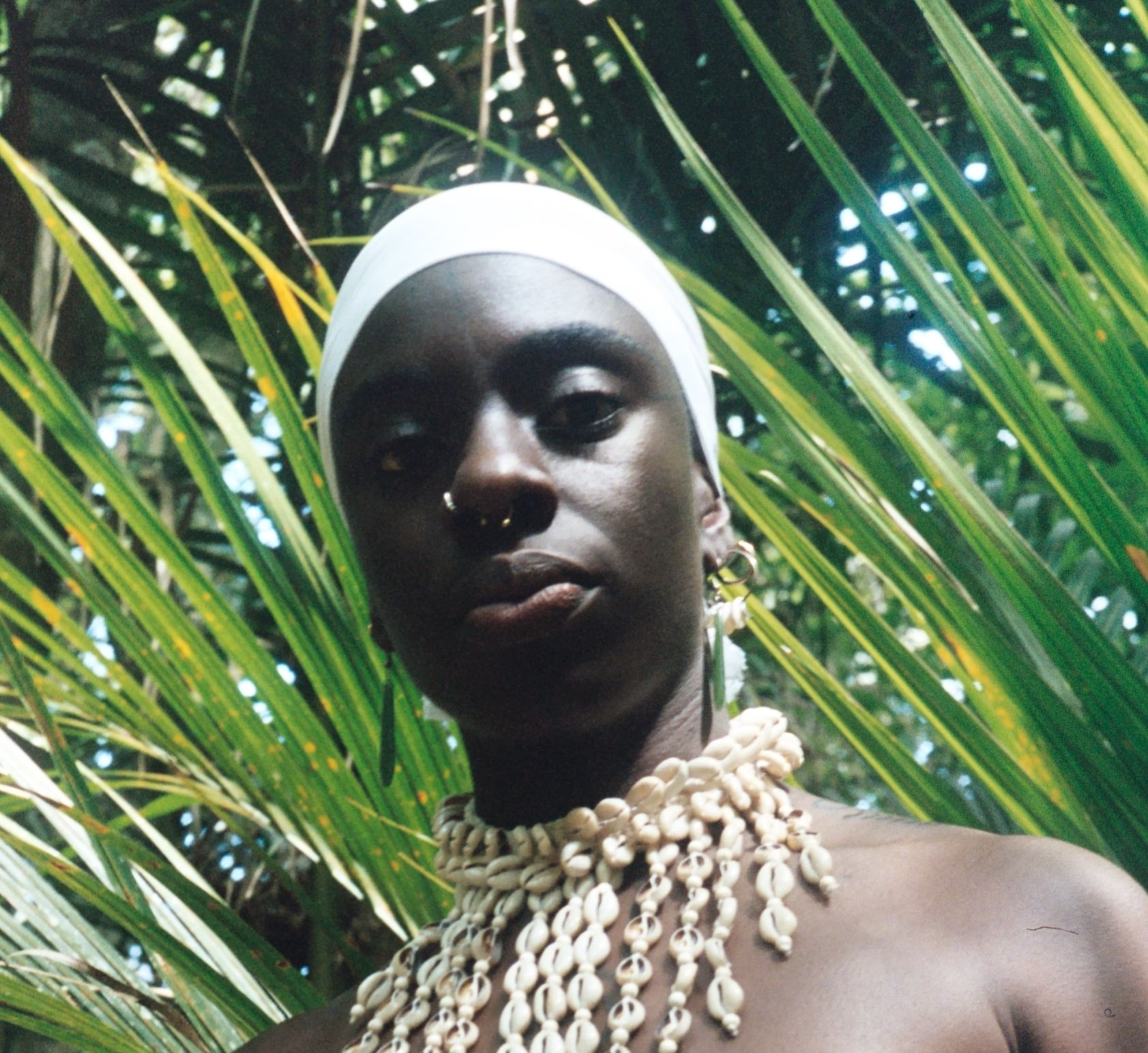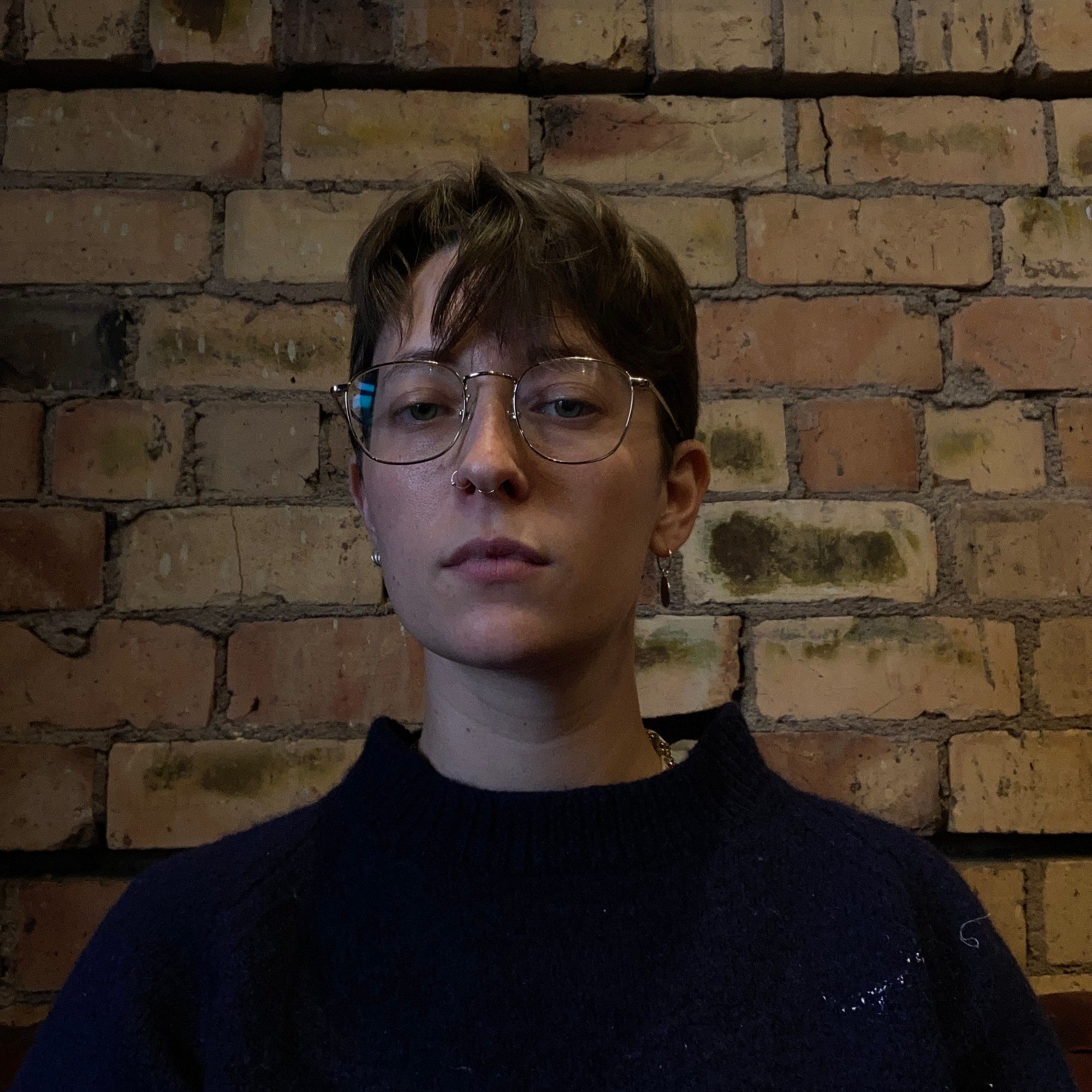Non-Binary Presents: Presence and Prescience at F.O.L.A. – AKL
The fluid, nebulous and subversive heart of the Festival of Live Art (F.O.L.A.) – AKL is the playground of our non-binary/gender-fluid artists. Roman Sigley explores performance with musicians Janina Nana Yaa and Jazmine Rose Phillips.
As in the case of being called “it,” being called a “creature” suggests the lack or loss of a superior personhood. I find no shame, however, in acknowledging my egalitarian relationship with non-human material Being; everything emerges from the same matrix of possibilities. “Monster” is derived from the Latin noun monstrum, “divine portent,” itself formed on the root of the verb monere, “to warn.” It came to refer to living things of anomalous shape or structure, or to fabulous creatures like the sphinx who were composed of strikingly incongruous parts, because the ancients considered the appearance of such beings to be a sign of some impending supernatural event. Monsters, like angels, functioned as messengers and heralds of the extraordinary. They served to announce impending revelation, saying, in effect, “Pay attention; something of profound importance is happening.”
– Susan Stryker, “My Words to Victor Frankenstein Above the Village of Chamounix: Performing Transgender Rage”
Performance is a concept and practice central to the experience of Queerness, and Transness, as we move through the world and under its vampiric gaze. A world keen to hold us at once at arm’s length, and under a microscope, behind bars and behind closed doors, mouth agape and drooling at our transgendered acrobatics.
Our method: used not only as a means to ‘pass’ through these crowds of squares unawares, dodging violence and the evil eye, but inversely, perversely (our favourite), to perform in the mirror, our Queer kin, in galvanising moments of realisation that it’s all made up and ours to twist and shout and pull out of thin air as we please.
Performance has a long history in Queer communities and in our activism. Sometimes, when people won’t listen, we can shove it in their faces in public and show them instead. We disidentify and disintegrate: when we are unable to repeat their behavioural norms in tandem, it can turn into resistance and play.
F.O.L.A [AKL]. Logo designed by Pippa Haslam
This year the Festival of Live Art (F.O.L.A.) – AKL brings to the forefront a line-up of “subversive, dirty, playful, humorous and above all daring artists” whose backgrounds naturally drew them to making live art. In this piece I chat to two non-binary/gender-fluid performance artists, musicians Janina Nana Yaa (NSA: Libation) and Jazmine Rose Phillips (their feet did not touch the ground), about how their practice of gender informs their art practice, and what we can greedily rub our hands in anticipation for in their upcoming shows.
Roman Sigley: Let’s start with the basics, for those new to the course. What does gender mean to you?
Janina Nana Yaa: Gender to me is a manmade construct. I try not to let it have a significant influence over my life, as it feels personally restricting. There are so many structures that add to our conditioning in terms of what we can and cannot do and feel! I am inspired and driven by my Akan Ghanaian heritage and Ancestral connection – Indigenous perspectives on gender make more sense to me as they relate more to our essence and there is room for fluidity.
Jazmine Rose Phillips: Gender… is a set of rules I have had imposed on me forever. It is so good at what it does. I had no idea, and am still finding out about this. It is something strange and seemingly pointless. It is art. It is the greatest sham we ever convinced ourselves of. It isn’t for me. It is uninteresting. It is a liar. It is violence, it is performance, it is fun, it is a murderer. It is a mother at home alone with a baby, and a dead friend who grew up a boy. It is lipstick. It is cruel to not give a baby a gender. It’s insanity.
Jazmine Rose Phillips. Image courtesy of the artist and FOLA
Roman: What does representation mean to you?
Janina: It is important because everyone matters and everyone deserves to be supported, uplifted, heard and seen. It does make me a little sad that we have to talk about representation, as it shows how much work still has to be done in our communities and hearts. True representation means being in our natural state within Nature, not having certain structures oppress how we desire to show up, and every being having space to be their authentic embodiment of self as we create interdependently.
Jazmine: Seeing a place for myself in the world where I can be soft and quiet. Not resilient, that’s for lizards.
True representation means being in our natural state within Nature
Roman: How does your experience of gender (yours, others) inform your work?
Janina: Creating is a place where I don’t have to adhere to any limitations or restrictions. It’s where I can be in my own way. I try to express more fluidity through my creativity, whether it is through the bodies I draw or the movement and singing I channel. To me, so many of our gods were genderless, fluid or didn’t operate through the ways society has set up for us. From an Indigenous and African perspective, they are the ones from whom we learn.
Jazmine: Growing up as a girl/woman informed a lot of my work to be trauma-based expressions of the female experience – anger and rage. How I looked, spoke and cried became a form of empowerment. It was and is a space that is mostly safe. My relationship to my experience moving through the world as a ‘woman’ was where I could speak from. However, through sharing those spaces, changing some minds, having conflict and experiencing more harm, I find that my relationship to my self, my body and my art has changed. Maybe, for now, I have outgrown that. These things haven’t changed in the world around me so much as they have inside my being. My gender identity is fluid but I still experience the world as someone perceived as a woman. I still experience violence from men and violence from my own mind toward my beautiful ageing body.
I reject my relationship to gender, body, art and identity. Maybe that doesn’t change it on a large scale but I refuse your gender, your violence, your capitalism and your entertainment. I’m not doing it. And with that, there’s all this space to fill it up with something. That void is terrifying and exciting. I’d like to think (and it’s very possible I’m full of shit) that I don’t do art to understand my identity, because focusing on who I am makes me an awful version of myself. Instead, I’m trying to use it to understand the world around me and find ways to gently reject the things that break my heart.
Janina Nana Yaa. Image courtesy of the artist and FOLA
Roman: What can we expect from the show?
Janina: A flowing stream of prayers and offerings in the form of sound, movement and poetry with some beautiful friends and an opportunity to join in ceremony.
It’s been a long process, postponed due to Covid. I don’t know what my performance is going to look like half the time – I have to wait and see it unravel itself to me. The rest reveals itself in the space, as I like to leave room for improvisation, fluidity and room to play!
This activation has come to life through so many conversations and reflections of where we are at in ourselves, our healing, our expression and in correlation to our Ancestors and various water divinities. They show up for us by mirroring how we can show up for them.
The rest reveals itself in the space, as I like to leave room for improvisation, fluidity and room to play!
Jazmine: You can expect to hear the story of somebody who deserves to be listened to. You can expect dirt and bricks and a body.
Roman: What does your dream of the future look like? What is freedom, for us?
Janina: [A future] where there is more space for Trans and Queer folk to be held – in our own communities, in our own families, our own lands. Where we are connected and in tune with Nature.
Freedom is an exploration – with room to evolve on the foundation of Indigenous tradition and practices. We are continuously learning new ways of being and weaving into this foundation until we have beautiful coverings, shelters and places of peace, rest and ease.
Jazmine: It is people saying “I love you” more. It is being comfortable with not knowing and being misunderstood. In the future I trust children more than myself. I listen more, without holding my next words in my mouth. We talk about things less than we do them. And it is extremely fashionable to care. And because of this the future is better and kinder.
I’m not going to try to explain what freedom is, I just want to ask – how do you use yours?
NSA: Libationhas been postponed due to the weather warnings, and is now opening the festival on Wednesday 15 February, 5.30pm in the Basement Foyer.
Their feet did not touch the ground runs on Wednesday 15 February, 6.30pm on the Main Stage, Basement Theatre.
*
This piece is presented in partnership with F.O.L.A [AKL], who've contributed toward paying our writers. We retain all editorial control.
This interview has been edited for length and clarity. Header image compiled by Pantograph Punch featuring hero images courtesy of F.O.L.A. [AKL] and the artists.
